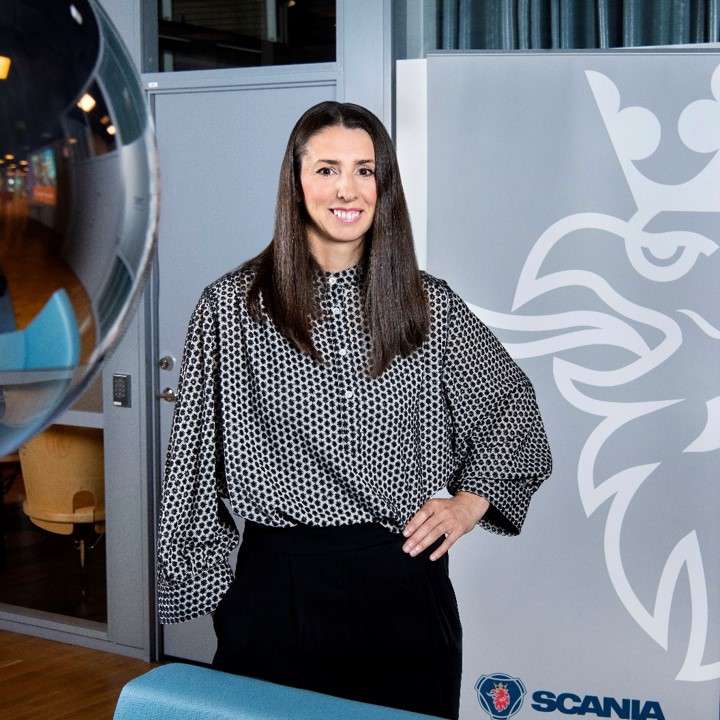Keynote Speakers
Opening Keynote: Azra Habibovic
BIOGRAPHY
Azra Habibovic is Technology Leader for Human Factors at Scania CV AB where she is responsible for defining and driving forward Scania’s early stage research in this field. Prior to joining Scania, Azra was with RISE Research Institutes of Sweden as senior researcher and project leader, and with the research center SAFER as research area director for road user behavior. She holds a PhD in Vehicle Safety Systems (2012) and a MSc in Electrical and Electronics Engineering (2006), both from Chalmers University of Technology, Sweden. Her research focuses on improving traffic safety and user experience by means of automation and connectivity. A special interest is design and evaluation of interactions in and around automated vehicles, including interactions with vulnerable road users.
Keynote Abstract
Designing mobility solutions for a diverse world:
The current challenges and research gaps from an industry side
The current challenges and research gaps from an industry side
Recent developments in electrification, digitalization and automation are expected to enable more safe, accessible and sustainable road mobility of both people and goods. However, implementation of these emerging technologies at scale is not always as simple as it might sound in media. In this keynote speech, I’ll touch upon a few challenges that automotive and mobility industry is facing in this context, and highlight some research gaps that are currently overlooked and require further attention. Special emphasis will be on the research gaps in the field of human factors and mobility of goods.
Online Keynote: Pei-Luen Patrick Rau
BIOGRAPHY
Pei-Luen Patrick Rau is Vice Dean of Tsinghua Global Innovation Exchange (GIX) Institute; Professor of Department of Industrial Engineering at Tsinghua University; Distinguished Young Scholar of National Science Foundation China. He received his PhD at School of Industrial Engineering at Purdue University, Indiana, USA. He is former Tsinghua-UNC MEM+MBA Dual Degree Program Director and former Director of the Institute of Human Factors and Ergonomics. His research interests include Human Factors Engineering, Human-Computer Interaction, and Cross-Cultural Design.
Keynote Abstract
Cultural effects on interacting with automotive UI
This talk covers three aspects of cultural influences on automotive UI design. First of all, cultural background can strongly influence wayfinding and navigation strategies. Secondly, there are cultural differences in risky taking behaviors, such as risk and hazard perception, and the design of warning labels. Finally, this talk extends cultural effects to a wide prospective application, including interacting with intelligent agents and intelligent transportation systems.
Closing Keynote: Myung HWAN YUN
BIOGRAPHY
Myung Hwan Yun is a Professor and the Director of Human Interface Systems Laboratory at the Department of Industrial Engineering, Seoul National University, Seoul, South Korea. He is also the immediate past president of the Ergonomics Society of Korea (2020-2021) and the Organizing Chair for the IEA(International Ergonomics Association)’s triennial conference, the IEA 2024 JEJU.
He received his B.S. and M.S. in industrial engineering from Seoul National University, Seoul, South Korea, and a PhD in industrial and manufacturing engineering from Penn State University, USA. His research interests include Human Interface Design, User Experience Research, Affective Product Development and Auditory User Interface.
Professor Yun spent most of his career advising and co-operating with major product/service developers in South Korea including Samsung Electronics (Mobile Products, Home Appliances), Hyundai Motors (Interior Trim, Perceived Quality, Sound Design, Driver Seat) and Hana Financial Group (User Experience, Customer Journey Planning)
Keynote Abstract
Current state of Automotive ui research in south korea
In this speech, outstanding developments and trends in Automotive Interface design is presented as we are witnessing the dramatic rise and fall of new interfaces and service platforms synchronized with the mega trends of Digital Transformation in Automotive Interface Design. The core of human centered product design has been always on the UI of people-centeredness deeply rooted in human factors throughout the changing nature of human behavior inside the cockpit.
While re-visiting the important innovations and achievements applying UI and User Centered Design to the automobile interiors in South Korea during the past years, the influence and impact of the Digital Transformation and Servitization on the way of designing automotive Interfaces will also be discussed. Finally, some case studies of the product/functions that the speaker was involved in the development will be introduced and discussed.


